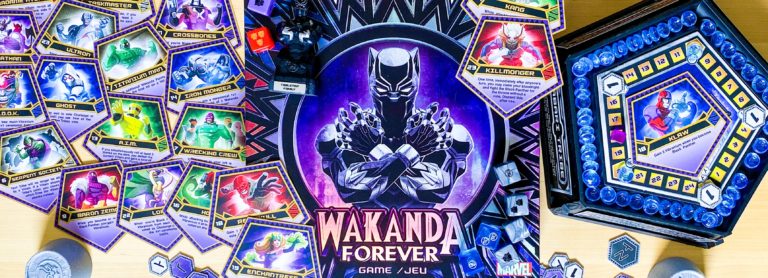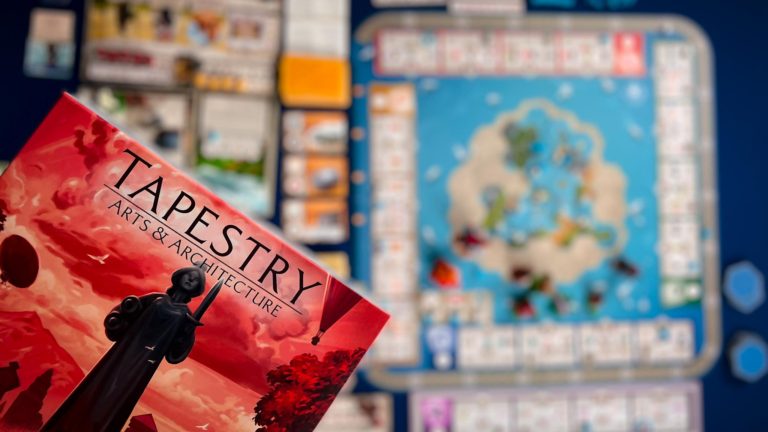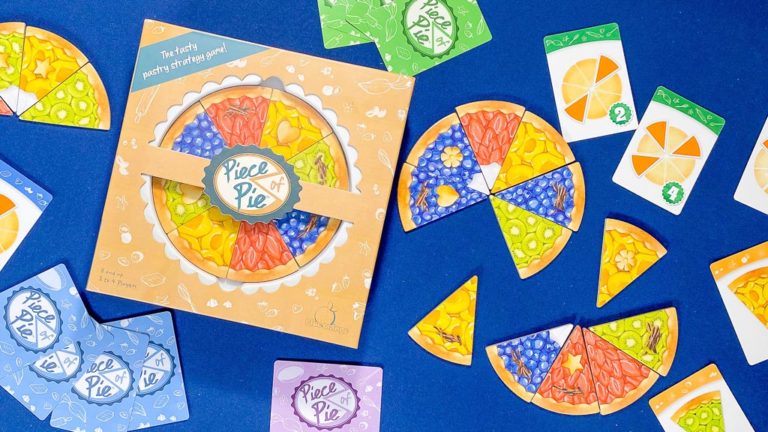Detective Club is a new party game that somehow manages to do what I previously thought was impossible. It is a bluffing game perfect for players who love to lie and spin tall tales, and ALSO for players who struggle with deception and coming up with stories on the fly.
If you hear the phrase “social deduction” and your heart fills with dread, fear not! This is such an inviting game for performers and wallflowers alike and is sure to have your group laughing at all of the silly and surprisingly perfect explanations you create for your cards.
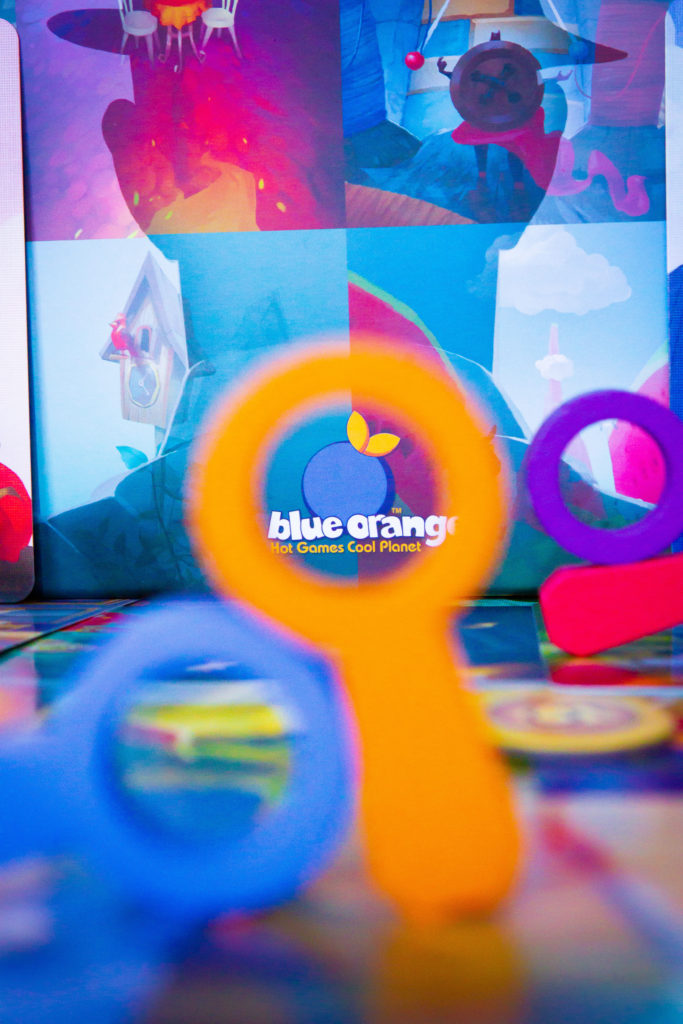
What is Detective Club?
Detective Club is a card driven deduction party game. Each round one player will determine a word that all players must use their cards to describe, however, one of the players will not know the word. That player must find a way to gather clues from the other cards played so they can play cards to blend in. Meanwhile the Detectives must attempt to discover who the conspirator is without getting accused in the process.
How do you play?
You play Detective Club in several rounds with each player having the chance to be the Active Player at least once. The game itself is very simple and can be taught in just a couple minutes.
Assign Roles and Play Cards
First, the Active Player looks at the cards in their hand and decides on a word that he can use two of his cards to describe. They then play one of those cards to the center of the table so the other players can see.
The Active Player will then use the included notebooks to write the word on each notebook except one, shuffling them and then randomly handing each player one notebook. The player who receives the blank notebook is the Conspirator while the others become Detectives. Knowing the word, the detectives must try to identify the Conspirator who will be trying to blend in by playing cards that do not reveal their ignorance of the word.

In clockwise order, the players then play one card in front of them that matches the word the Active Player wrote in the notebook. Once all players have played one card, the Active Player will play a second card and so too will everyone else. The Conspirator tries to gather information based on what cards everyone else is playing to try and help them know what to play from their hand so as to avoid suspicion during the voting phase.
Explanations and Voting
Once everyone has played two cards, the Active Player says the word he wrote and explains the reasoning behind the cards he chose. Then, in clockwise order, all players do the same.
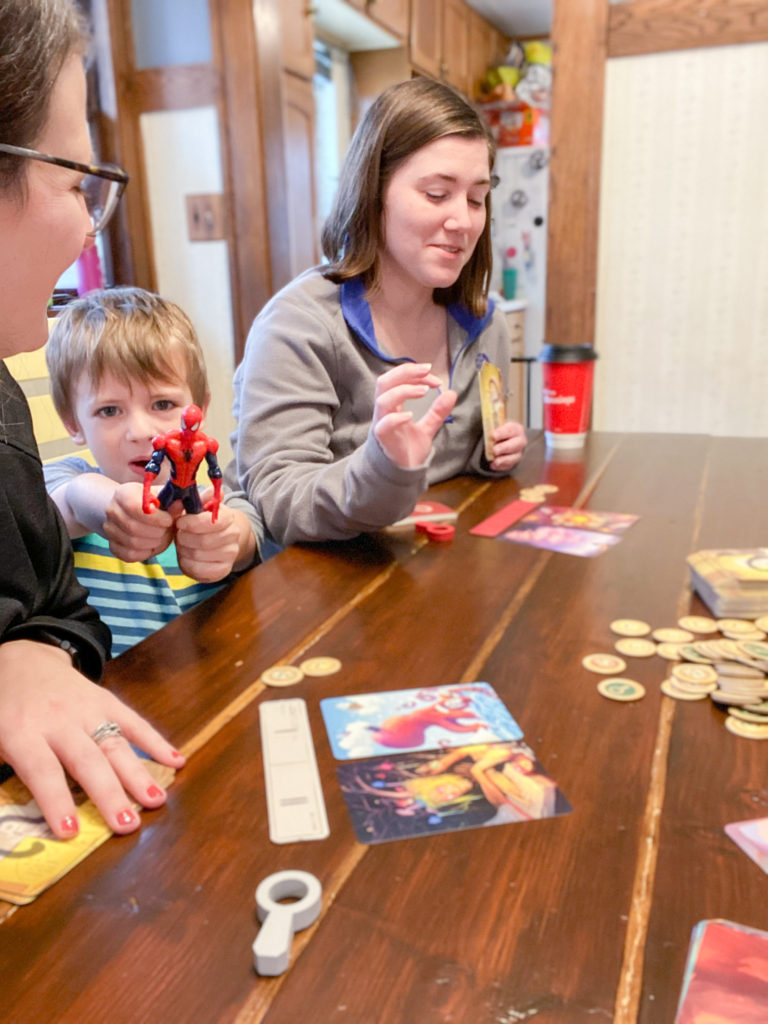
Then it is time to vote. Players place their voting token next to the player they believe is the Conspirator. After everyone has voted, the notebooks are flipped over to reveal the true Conspirator and points are awarded.
Detectives earn 3 points for correctly identifying the Conspirator.
If 0 or 1 player identified the conspirator, then the Conspirator and the Active Player earn 5 and 4 victory points respectively.
If 2 or more identified the Conspirator, then the Conspirator and Active Player earn no victory points.
The game ends when everyone has had the chance to be the Active Player at least once and the player with the most points wins.
What do we think?
I was pleasantly surprised by Detective Club and found it to be a really well designed game and a ton of fun to boot!
We tend to enjoy games that require players to pull upon their improvisational skills. I love the challenge of thinking on your feet and spinning a story quickly. Games like SpyFall, Balderdash, The Chameleon or many of others in the social deduction category allow players this opportunity.
Detective Club feels different though, and will be much more welcoming to players that do not enjoy the performative aspect of more improvisational driven games. It also is very well balanced to allow a wide range of ages to play that would not typically be able to in other more similar games.
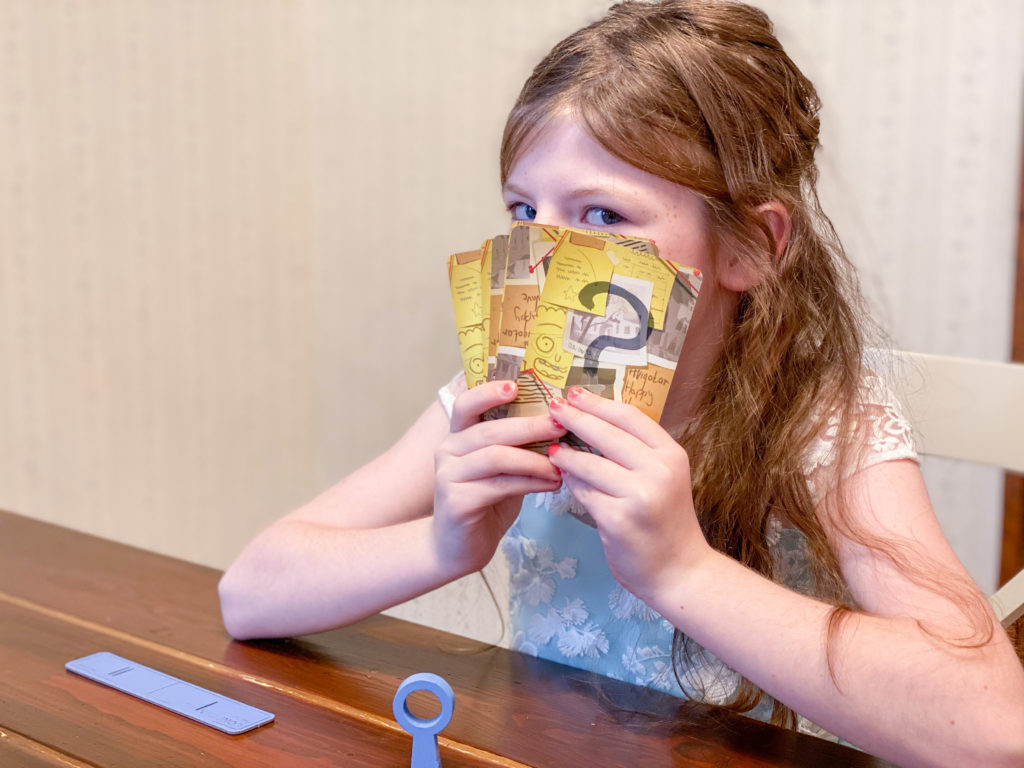
I love that players reveal cards one at a time rather than both at once. This really helps the player who does not know what is going on to try and garner clues from the images that they see and adjust their second card if needed.
I find that this allows kids to really be able to play and thrive in Detective Club where they might struggle in other games where thinking quickly and spinning a tale is central.
When it comes time to explain, because the Informer who chose the clue goes first, the player without the clue has a chance to quickly come up with their story for why they chose the cards that they did. As the Conspirator, if you are sitting directly to the left of the Informant you can be in a pretty tough spot. Even still, the fact that you’re given the information you were missing before you need to convince everyone that you knew what you were doing is very helpful and gives you a decent shot of making it work.
And because the cards are all so whimsical you can find a way to make almost every card fit! And if you can’t, odds are another player is in the same boat despite knowing the word.
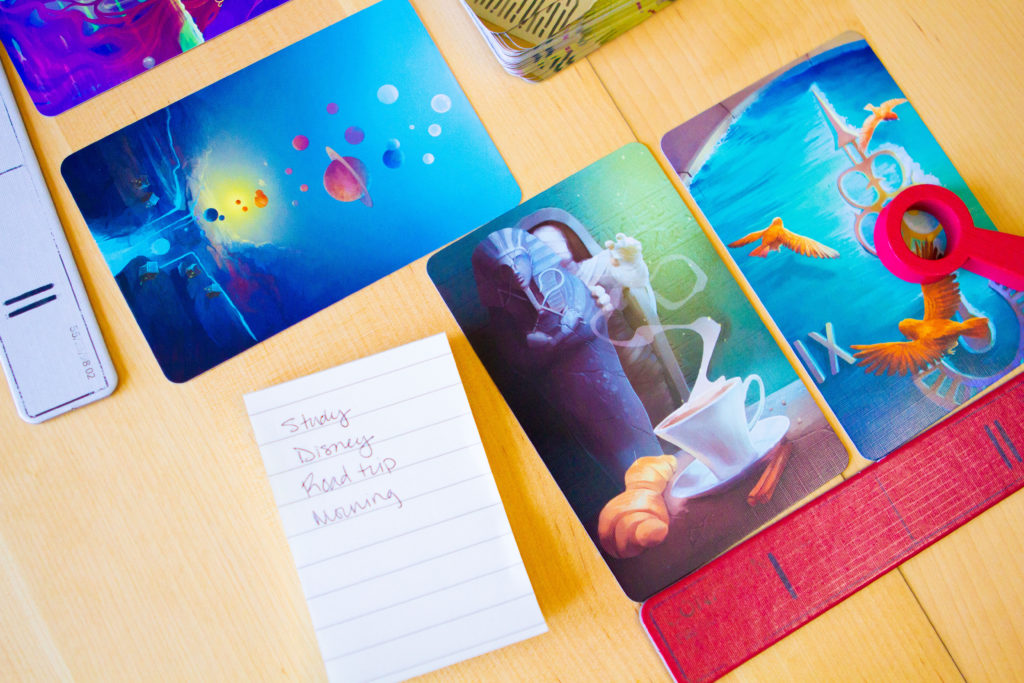
Honestly, the art in this game is phenomenal. The cards are so bizarre yet beautiful I found myself wondering how the artists thought up so many perplexing scenes. While there is definitely an element of luck in drawing cards that happen to work better than others with certain clues, the luck for everyone feels balanced.
It goes without saying, (but I’ll say it anyway,) that if you’re a fan of Dixit, there’s a great chance that Detective Club will draw you in. In fact, I find myself preferring Detective Club strongly to Dixit! I absolutely love the challenge of choosing cards to match the clue and seeing the different ways players interpret the same clue. Having a chance to be the conspirator is also a lot of fun and gives that challenge of trying to blend in that I absolutely love in The Chameleon.
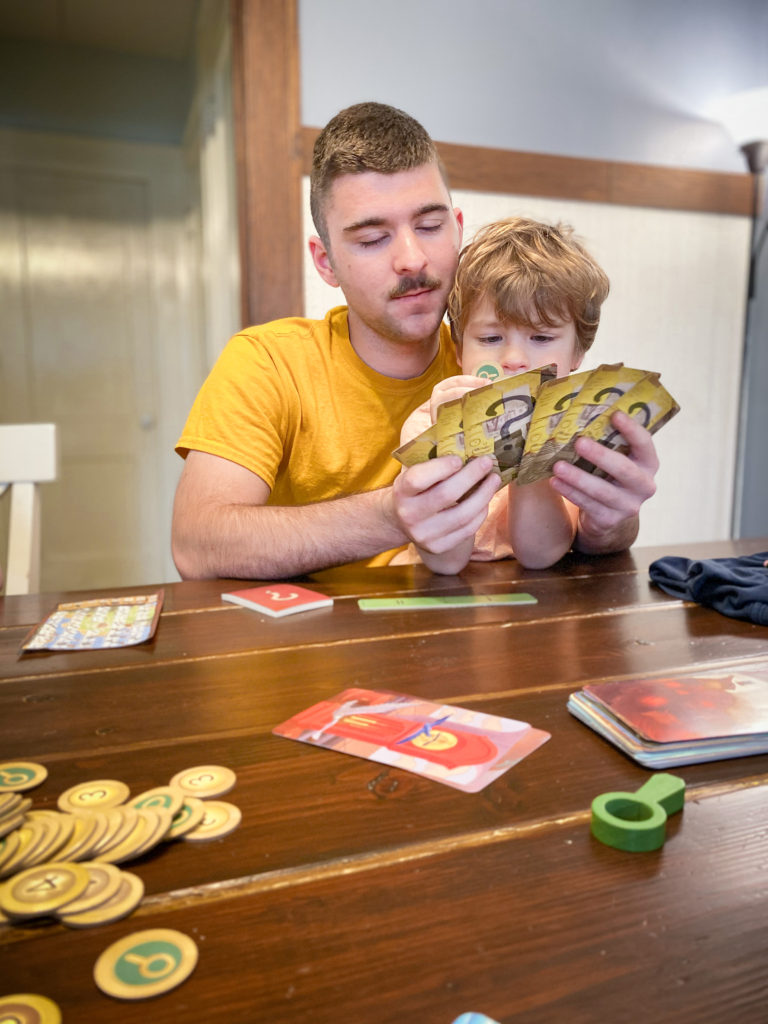
The best part about the game though might be the calm manner that voting takes place. If you dislike social deduction games because you do not enjoy accusing or be accused, fear not. The voting is so straight forward. There isn’t any finger pointing or loud and passionate denials. You just listen to everyone’s explanations then, when that’s over, you just place your token by whomever you think didn’t know what the clue was.
It’s a refreshing change of pace. Again, this makes Detective Club very inviting to a younger audience. Our daughter loves this game and I always get so proud with how well she finds ways to explain her cards, whether she knows the clue or not. It’s such a great exercise for younger players and since there isn’t a stressful voting or accusation phase, it allows them to stay engaged and enjoying their time without worrying about being the conspirator.
Two Things to Note
The more people you play this with the better. While you can play with four, it works best in that 6-8 player count. At four it was just a bit too easy to figure out who the conspirator was every time. It also happened that one person more than others ended up being the conspirator. With more players there’s a better chance to hide and less of a chance that you end up being the conspirator multiple times in a row.
Also, the point system isn’t super necessary, but its there if you really like to keep score. We just liked to go around and around the table, playing until we were ready to be done. (which was way more than the recommended once or twice around the table.) We kept score most of the time, but didn’t really check or care what the standings were. It was just fun to play, make up and laugh at silly explanations.
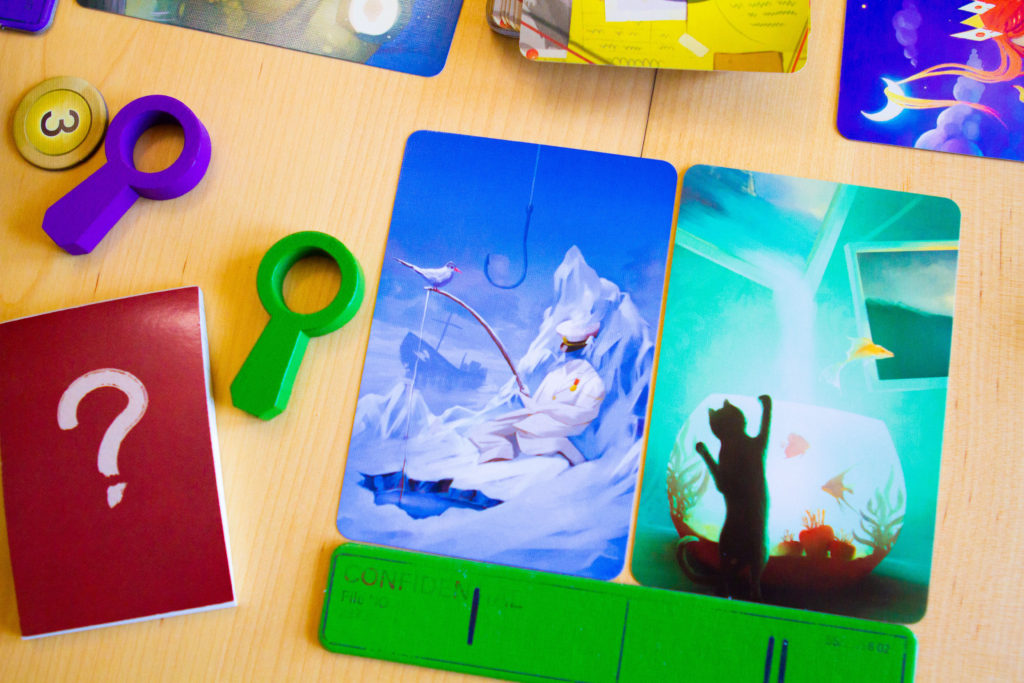
Summary
With beautiful art, easy game play, and an ability to support a large number of players, Detective Club is a great fit for anyone looking for a light party game. It’s a breeze to teach and offers a lot of opportunities to laugh as everyone, detectives and conspirator alike, will get their wheels spinning trying to find match cards with clues. Detective Club is an instant recommend from us!
A special thank you to Blue Orange Games for sending us a copy of Detective Club for review. As always, our thoughts and opinions are our own.
Game Info:
Title: Detective Club
Players: 4-8 ages 8+
Designer: Oleksandr Nevskiy
Artist: M8I Studio
Publisher: Blue Orange Games
If you liked this post you may also like:
6 of Our Favorite Social Deduction Games
10 Great Deduction Games (<– no need to worry about lying here!)
Mountains Review

